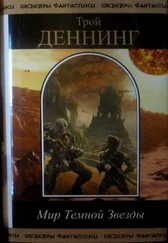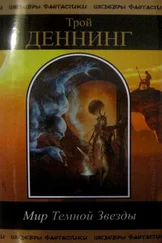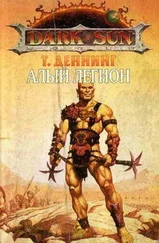When dusk fell and it grew too dark to read or sharpen swords, the widow and Harper put away their preparations. Rather self-consciously, for Sa’ar’s sharp eyes were turned in their direction, they said good night and went to their separate khreimas . Ruha would have liked to go with Lander to discuss the coming battle, but that would not have escaped the warriors’ attentions, and she suspected that they would take it as a bad omen.
Most of the Bedine stayed up late into the night, discussing the camels they would ride into battle and arguing over whether it was better to kill a man with a down or side slash. Judging from their swaggering tones and their easy manner, they were as confident of victory tomorrow as they were of At’ar’s rising.
By morning the tone was different. An alarmed messenger rushed up the hill, calling for Sheikh Sa’ar and waking everyone in the camp. Ruha quickly covered her face and pulled her jellaba over her shoulders, then stuck her head out the door of her khreima .
The gray hues of first light were just creeping over the knoll. Groggy warriors were climbing out of their khreimas , scimitars and bows in hand. Sa’ar himself, as well as Lander, were already standing outside their tents, strapping their scabbard belts onto their waists.
“What is it?” Sa’ar demanded. “Are the Zhentarim on the move?”
The messenger shook his head and pointed eastward, toward the hill upon which Haushi’s tribe was camped. More than a quarter-mile away, the knoll was one of the most distant that the Bedine had selected for a campsite. Still, it was close enough for Ruha to see that a half-dozen vultures were circling its summit, their ravenous heads gazing at some grisly scene below.
“Sheikh Utaiba asks that you join him there,” the messenger explained. “And he asks that you bring the Harper and the witch along.”
Before Sa’ar could turn to summon her, Ruha climbed out of her tent. “I’m ready,” she said.
Ruha, Lander, and Sa’ar walked to the knoll. As they climbed to its summit, they were joined by the sheikhs of the other tribes.
The hill was capped by tangle-branched frankincense trees with gnarled trunks and spiny leaves. A few scrub bushes, stripped bare by hungry camels, also dotted the stony ground, but it was otherwise barren of vegetation.
It was not the Ruwaldi custom to arrange their khreimas in a circle, as was the case with most other tribes. Instead, they pitched their tents in a series of parallel rows, the mouths facing each other across narrow corridors of open ground. The Ruwald claimed that, because their arrangement was more orderly, it was more secure.
What Ruha saw now suggested otherwise. Before each Ruwaldi tent, six heads were set out in neat rows. Though N’asr’s children had already plucked out the eyes and tore the ends of the noses away, enough of each man’s face remained for the young witch to see they had died in their sleep. Their jaws were not set in determination. Neither were their mouths agape in horror. Sometimes the heads’ lips were turned down in drowsy frowns, sometimes they were smirking at some dream, but their expressions remained uniformly sedate.
Ruha was not the only one to notice this disconcerting serenity. “In the name of Eldath!” Sa’ar gasped, slowing running his eyes up the row of tents. “How could the Zhentarim kill them all in their sleep? Wouldn’t at least one man wake and scream before the steel was drawn across his throat?”
Utaiba glanced accusingly at Ruha, then scowled at Lander. “Have you slept with the widow, Lander?” he asked. “Only N’asr’s curse could cause this.”
The Harper, staring at the heads in anger and shock, did not seem to hear the question.
Ruha answered for him. “Our sleeping arrangements are not your concern, Sheikh, but you may rest assured that this is not N’asr’s curse.”
When Utaiba frowned at Ruha’s reply, Sa’ar said, “The widow and the Harper slept in my camp last night, and I swear they did nothing to anger her husband’s spirit.”
“I would not doubt the word of a brother sheikh,” said Didaji. He was a tall, gaunt man swathed in a brown turban, and a crimson scarf was pulled across his face. In his tribe, it was the men who covered their mouths and the women who went without veils. “But if this is not N’asr’s doing, how did it happen?”
“Zhentarim magic,” Lander answered, his attention still fixed on the heads.
Utaiba walked to one of the heads and picked it up by the hair. Pointing at the stump of the neck, he said, “This was cut by a sword, not by a magic charm.”
“A dozen asabis could have killed every man here,” Lander said, waving his hand at the camp.
“I don’t see how,” objected Sa’ar. “Even if a dozen men could sneak past our sentries, someone would have seen or heard the attack.”
“Not if you didn’t know what to look for,” Ruha said. When the sheikhs looked at her with curious expressions, she continued, “I can show you how they did it.”
“Please do,” requested Didaji.
Ruha pointed at the khreima closest to the group. “Sheikh Sa’ar, would you take your sword and begin striking a tent pole?”
The burly sheikh raised an eyebrow, but went to the entrance and did as asked. As his blade began to bite into the wood, hollow thuds throbbed across the hilltop.
“That is something like the sound a beheading would make, is it not?” Ruha asked.
“Close,” Utaiba replied, tossing the head in his hand aside and rejoining the others.
The widow removed a pinch of clay from her pocket and cast it into the breeze, at the same time speaking her incantation. The sound of Sa’ar’s blade striking the tent pole faded to silence, but everyone could see the sheikh swing several more times.
The Mahwai stopped and frowned at Ruha, angrily asking a question that no one could hear. Several of the sheikhs chuckled.
“This is all very funny,” said Didaji, “and I can see why no one was awakened by sounds of struggle. But there is still the matter of sight. Even in the night, the asabis would not be invisible.”
“They might be,” Lander said. “Remember the ring I brought to Elah’zad.”
Utaiba brow rose in alarm. “How many of those could they have?”
“Not many,” the Harper replied. “But there are spells that do the same thing for a short time.”
Utaiba looked at Ruha with renewed respect. “Can you do that?” he asked.
“I cannot make people invisible,” she replied, “but I can conceal them in the darkness.”
The sheikh nodded thoughtfully. “Then I am glad the gods have blessed you with their favor,” he said. “We shall have to make a list of your other talents.”
The comment sent a wave of contentment through Ruha’s veins, and she was surprised at how good it felt to be needed.
Sa’ar interrupted her satisfaction by stepping to her side. “What did you do to—?” The burly sheikh stopped speaking in midsentence, astounded to hear his own voice again.
Ruha chuckled at his astonishment. “I didn’t do anything to you,” she said. “I did it to the pole you were hitting. It was a spell that absorbs sound from everything within a few feet of its target.”
Flushing with embarrassment, Sa’ar sheathed his scimitar and turned to his companions. “What are we waiting for?” he asked, waving at the campsite. “This changes nothing. Let us go to battle.”
“No,” Lander replied, walking toward one of the Ruwaldi tents. “That’s what the Zhentarim want, so we’d better come up with another plan.”
“What do you mean?” asked Yatagan, a toothless man with a wizened face. In contrast to the abas of the other Bedine, he wore billowing, brightly colored trousers and a loose shirt covered by a green vest.
Читать дальше











![Трой Деннинг - Тихая буря [litres]](/books/391050/troj-denning-tihaya-burya-litres-thumb.webp)